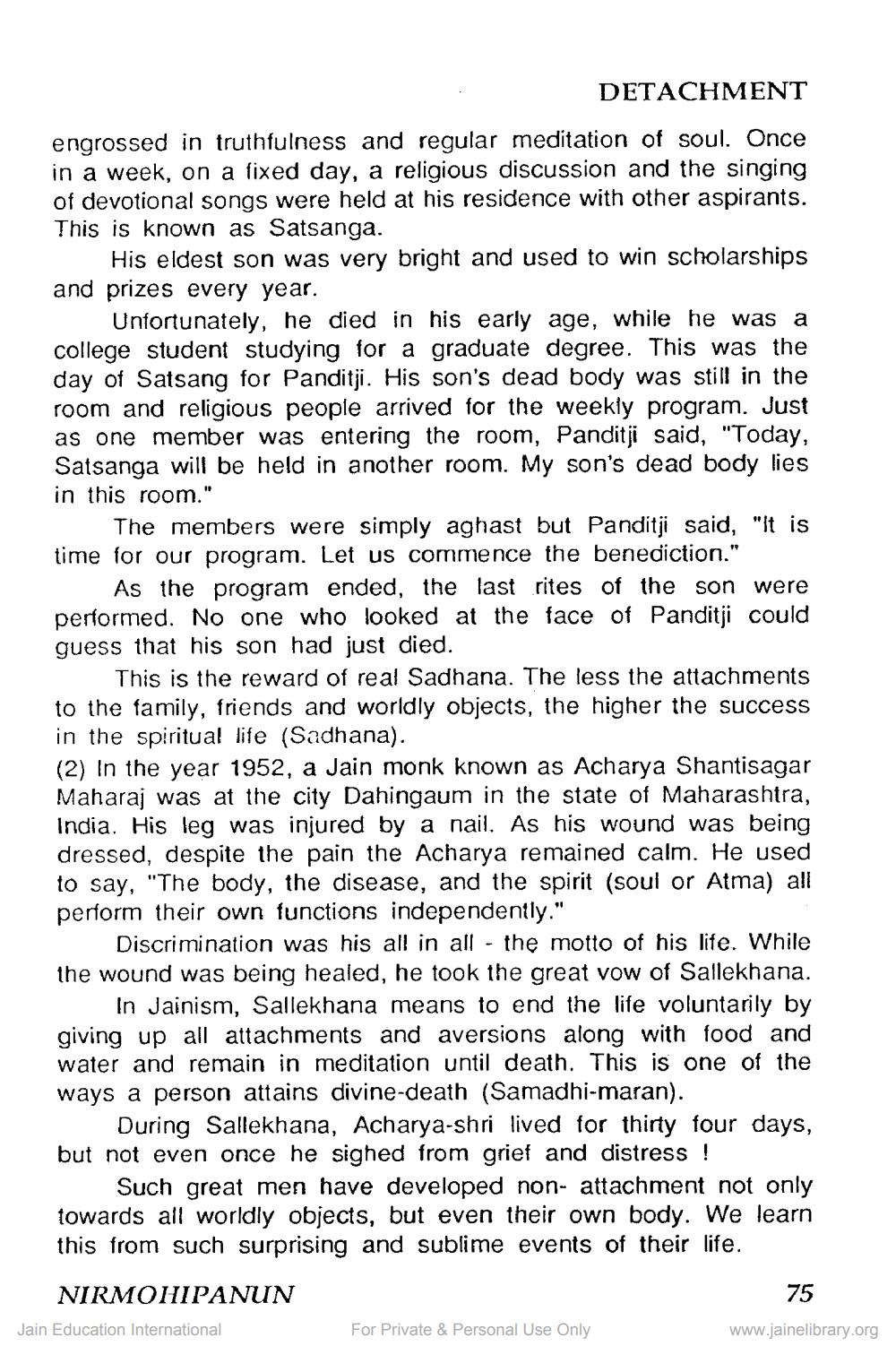________________
DETACHMENT engrossed in truthfulness and regular meditation of soul. Once in a week, on a fixed day, a religious discussion and the singing of devotional songs were held at his residence with other aspirants. This is known as Satsanga.
His eldest son was very bright and used to win scholarships and prizes every year.
Unfortunately, he died in his early age, while he was a college student studying for a graduate degree. This was the day of Satsang for Panditji. His son's dead body was still in the room and religious people arrived for the weekly program. Just as one member was entering the room, Panditji said, "Today, Satsanga will be held in another room. My son's dead body lies in this room."
The members were simply aghast but Panditji said, "it is time for our program. Let us commence the benediction."
As the program ended, the last rites of the son were performed. No one who looked at the face of Panditji could guess that his son had just died.
This is the reward of real Sadhana. The less the attachments to the family, friends and worldly objects, the higher the success in the spiritual life (Sadhana). (2) In the year 1952, a Jain monk known as Acharya Shantisagar Maharaj was at the city Dahingaum in the state of Maharashtra, India. His leg was injured by a nail. As his wound was being dressed, despite the pain the Acharya remained calm. He used to say, "The body, the disease, and the spirit (soul or Atma) all perform their own functions independently."
Discrimination was his all in all - the motto of his life. While the wound was being healed, he took the great vow of Sallekhana.
In Jainism, Sallekhana means to end the life voluntarily by giving up all attachments and aversions along with food and water and remain in meditation until death. This is one of the ways a person attains divine-death (Samadhi-maran).
During Sallekhana, Acharya-shri lived for thirty four days, but not even once he sighed from grief and distress !
Such great men have developed non- attachment not only towards all worldly objects, but even their own body. We learn this from such surprising and sublime events of their life. NIRMOHIPANUN
75 Jain Education International For Private & Personal Use Only
www.jainelibrary.org




